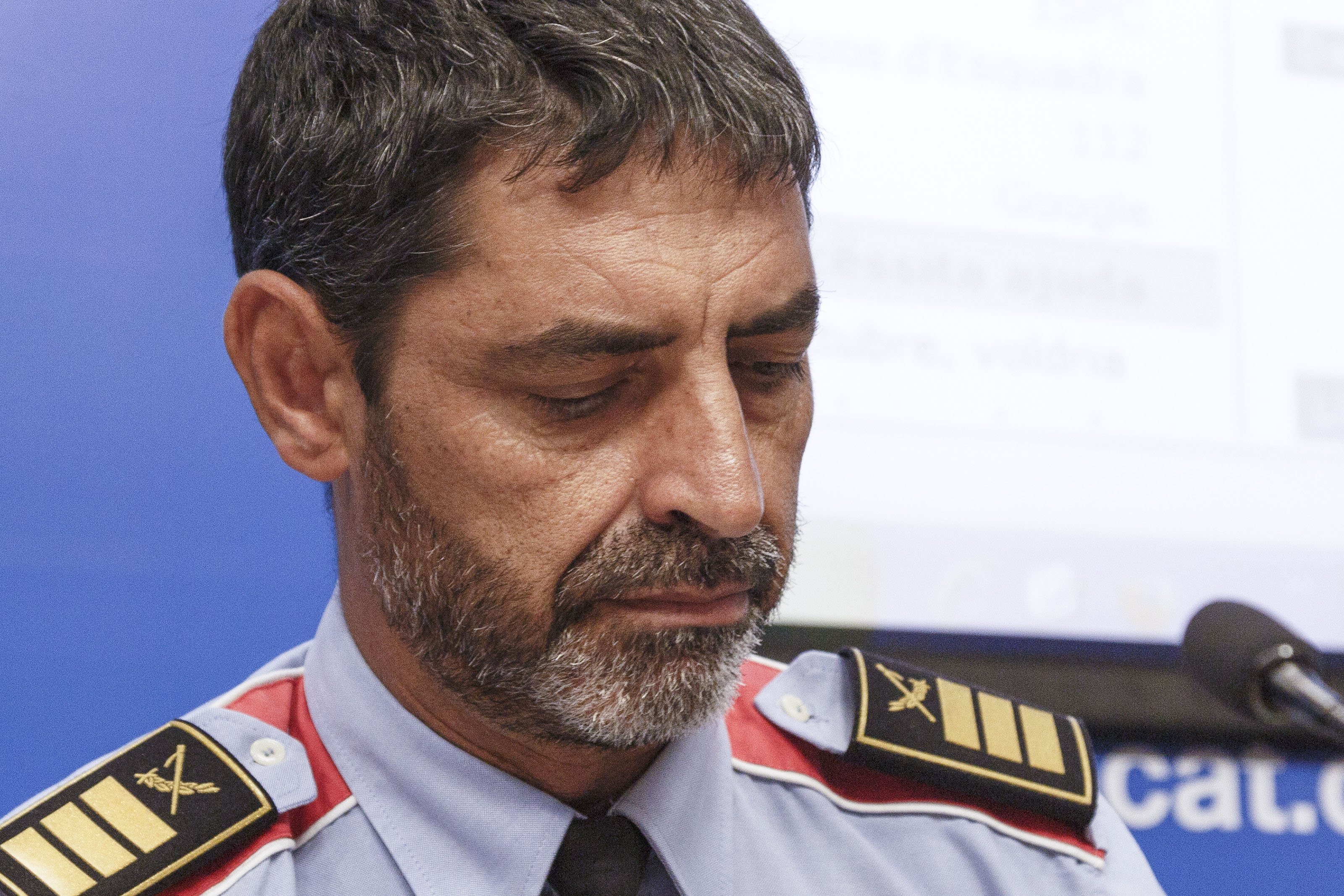A judge from Spain's National Audience court, Carmen Lamela, has summonsed the former major or head of the Mossos d'Esquadra, the Catalan police force, for a new crime of sedition. The judge contemplates two counts of sedition and doesn't discount a possible charge of criminal organisation.
In an tough, direct order without she attributes him with behaviour "disguised under the principles of police activity of proportionality, coherence and opportunity". According to Carmen Lamela, the Mossos's attitude towards stopping the independence referendum was one of "complete inactivity".
The summons comes days after the Civil Guard officer in charge of coordinating the referendum police operation, Diego Pérez de los Cobos, testified to the National Audience, accusing the Mossos of inaction to avoid preventing the referendum (link in Catalan).
The judge writes that throughout the investigation, facts have come to light indicating that the Mossos's actions, originally expected to prevent the referendum from being held, ended up far from it, being "directed towards obstructing any action which would block the strategic plan to independence".
With this aim, according to Lamela, "a plan was designed, premeditated to avoid acting, which came from the senior police leadership of the Mossos d'Esquadra, leadership commanded by Josep Lluís Trapero and directly connected with the members of the strategic committee", referring to the supposed strategic committee of pro-independence politicians and others alleged to be behind the independence process.
The Mossos's behaviour, according to Lamela, from 20th September to the referendum on 1st October, "disguised under the principles of police action of proportionality, coherence and opportunity, was of complete inactivity".
The judge adds that both the head prosecutor of Catalonia and colonel Pérez de los Cobos told Trapero that the action plan they'd prepared in advance was inadequate to fulfil the orders they had been given, "and [Trapero] promised to modify it with the recommendations they gave him. Nonetheless, he never carry out any modification, leading their action in accordance with the original plan".
In terms of stopping any action which would block the strategic "road map" to independence, the judge highlights the unsigned generic guidelines given to the Mossos agents, the comms system used on 1st October which slowed communications, as well as oral orders on the day which contradicted written ones, leaving "within the scope of the personal evaluation of the agent the legal observance of the High Court of Catalonia['s orders] (...) having a cascading effect on the rest of the execution guidelines, leaving them deactivated".
The judge concludes that the Trapero's immediate aim was to "enable the holding of the referendum and, with that, the proclamation of a Catalan republic, independent of Spain, being aware that he was carry out actions on the edges of the law, not paying attention to the order received from the High Court of Justice of Catalonia and against the decisions adopted by the Constitutional Court".
The facts attributed to Trapero could constitute, according to Lamela, two counts of sedition for the events of 20th and 21st September and 1st October 2017, without prejudging other decisions "and in particular the qualification of the facts as constituting a crime of criminal organisation".
Identifying the agents
The judge also asks the Mossos for information about how they communicated the operation planned for the 1st October, as well as the identity of the people who did so, the written or oral means used, the guidelines issued, the orders received, the identities of the heads of the Brimo and Arro units who were on duty that day, as well as the composition and working of the internal chain of communications between the agents.
Finally, the judge requires the Civil Guard of Catalonia, as judicial police, to identify the Mossos officers who guarded Civil Guard and Spanish National Police facilities on 1st October.

